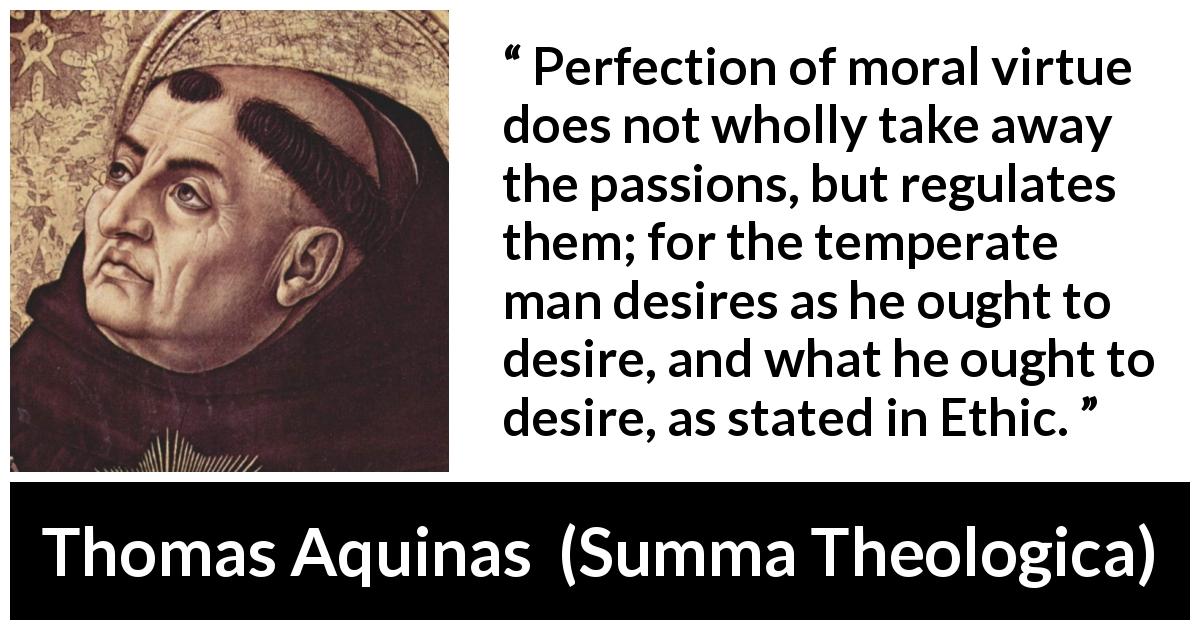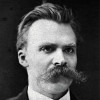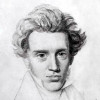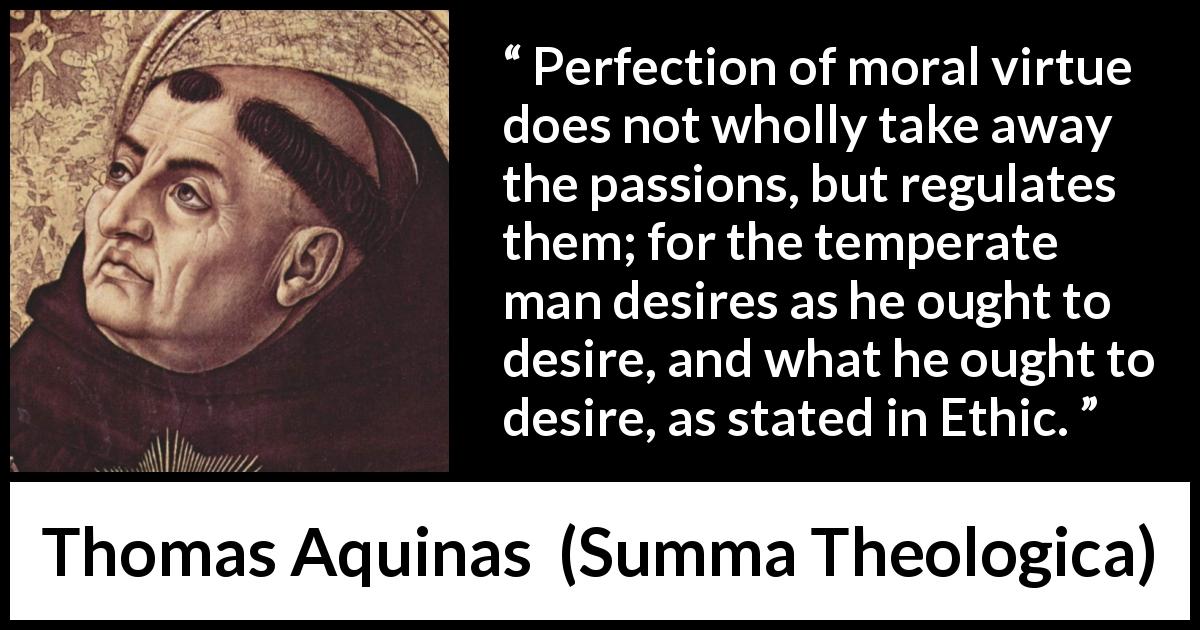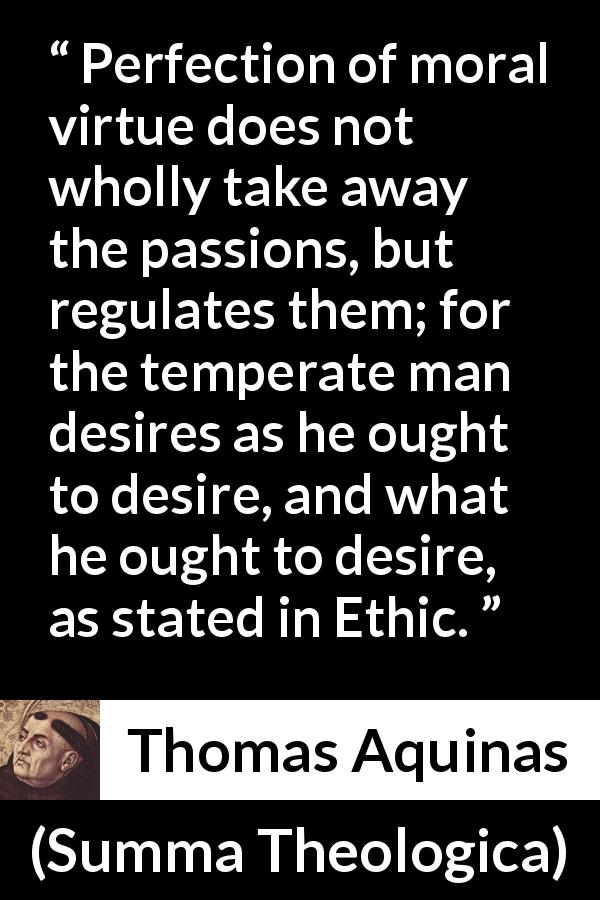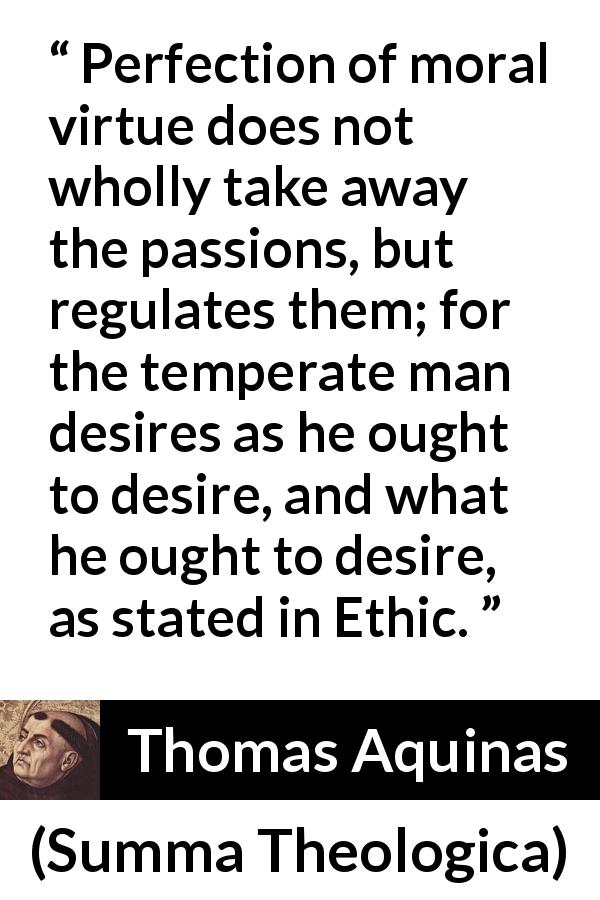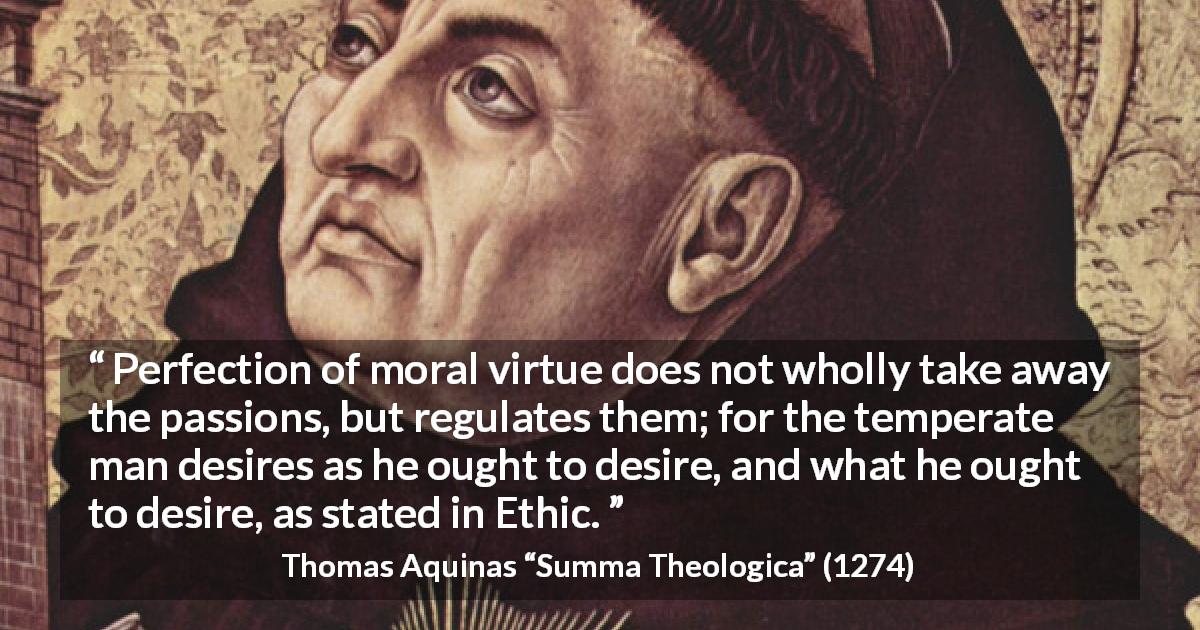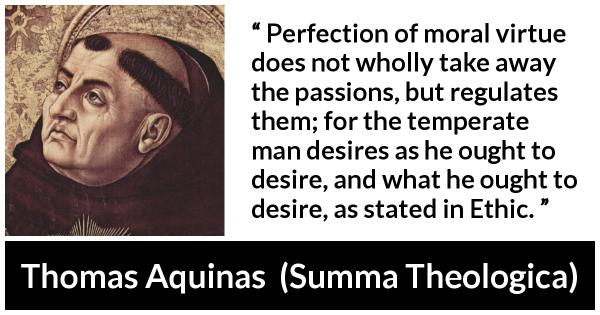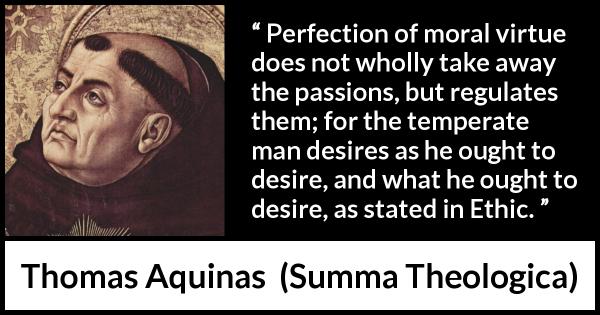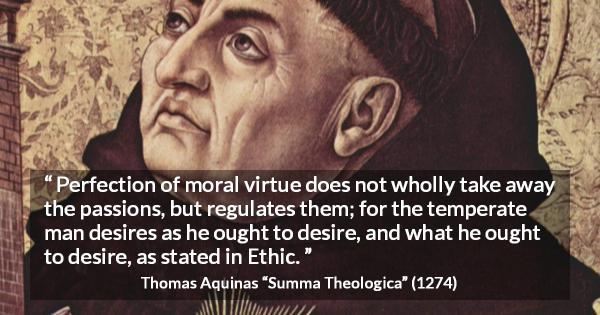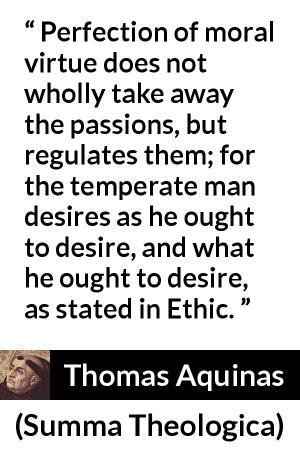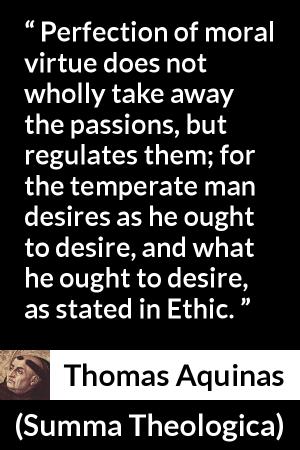“ Perfection of moral virtue does not wholly take away the passions, but regulates them; for the temperate man desires as he ought to desire, and what he ought to desire, as stated in Ethic. ”
Thomas Aquinas, Summa Theologica (1274). copy citation
| Author | Thomas Aquinas |
|---|---|
| Source | Summa Theologica |
| Topic | virtue desire passions perfection |
| Date | 1274 |
| Language | English |
| Reference | |
| Note | Translated by Fathers of the English Dominican Province |
| Weblink | http://www.gutenberg.org/cache/epub/17611/pg17611-images.html |
Context
“2: The human body was impassible in the state of innocence as regards the passions which alter the disposition of nature, as will be explained later on (Q. 97, A. 2); likewise the soul was impassible as regards the passions which impede the free use of reason.
Reply Obj. 3: Perfection of moral virtue does not wholly take away the passions, but regulates them; for the temperate man desires as he ought to desire, and what he ought to desire, as stated in Ethic. iii, 11. _______________________
THIRD ARTICLE [I, Q. 95, Art. 3]
Whether Adam Had All the Virtues? Objection 1: It would seem that Adam had not all the virtues. For some virtues are directed to curb passions: thus immoderate concupiscence is restrained by temperance, and immoderate fear by fortitude.” source
Reply Obj. 3: Perfection of moral virtue does not wholly take away the passions, but regulates them; for the temperate man desires as he ought to desire, and what he ought to desire, as stated in Ethic. iii, 11. _______________________
THIRD ARTICLE [I, Q. 95, Art. 3]
Whether Adam Had All the Virtues? Objection 1: It would seem that Adam had not all the virtues. For some virtues are directed to curb passions: thus immoderate concupiscence is restrained by temperance, and immoderate fear by fortitude.” source
